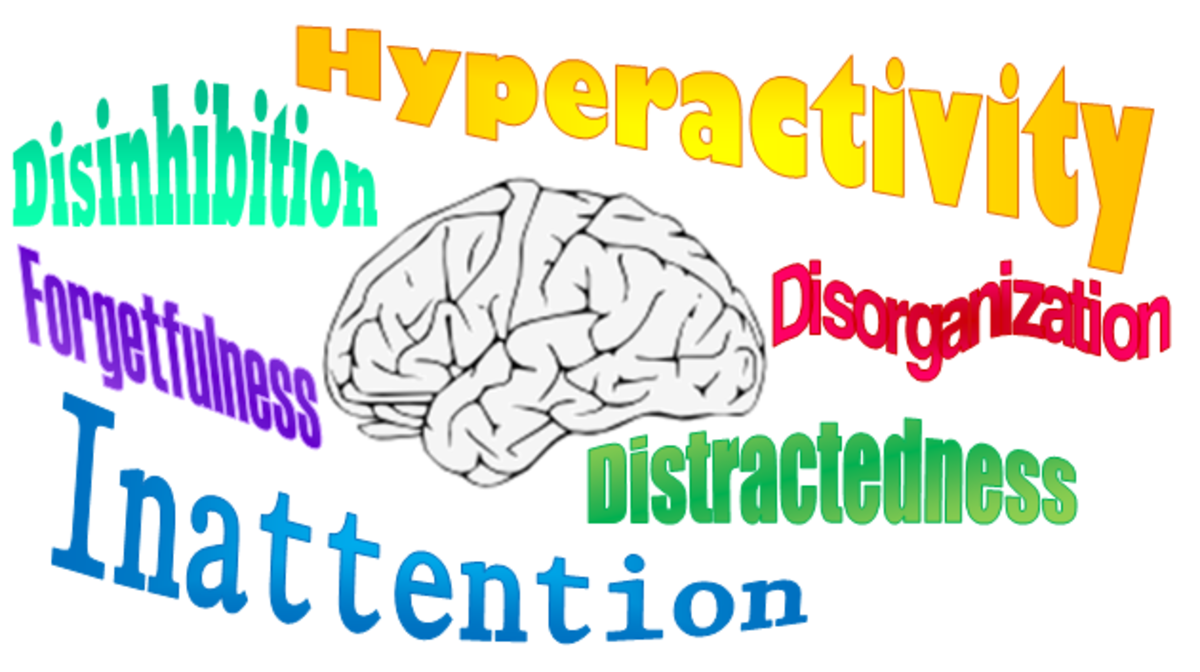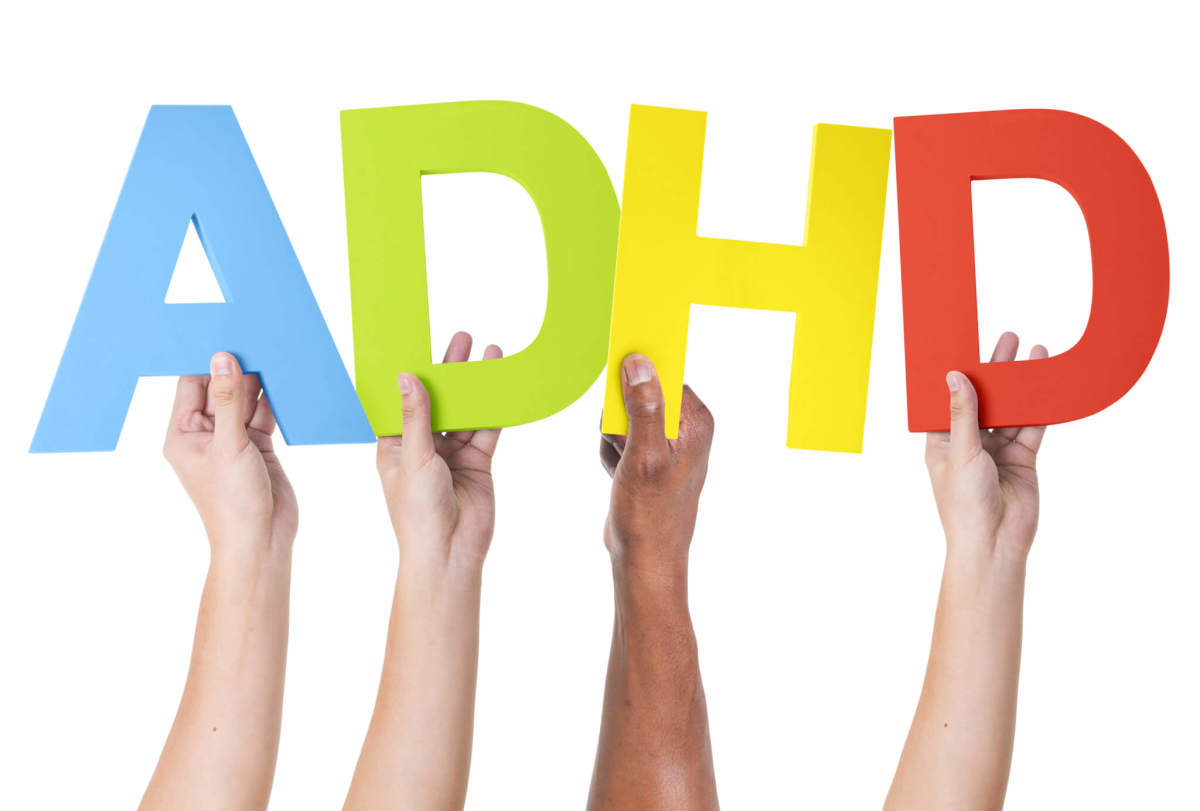ADHD and PKU linked through Phenylalanine and Aspartame?
Are some ADHD'ers really PKU sufferers
There is a lot of controversy as to whether or not aspartame should be avoided by people with ADHD/ADD. This article looks at a possible link of ADHD with Aspartame, a disease known as PKU and the effects of chemical processes involved with phenylalanine.
Aspartame is made by the joining of the natural amino acids L-aspartic acid and L-phenylalanine
Upon ingestion, aspartame breaks down into its components, including phenylalanine and methanol. Phenylalanine is dangerous to those born with phenylketonuria (PKU), an inherited disease that stops phenylalanine from being dealt with properly in the body. Phenylalanine naturally occurs in many foods, but not so concentrated.
Left untreated, this condition can cause problems with brain development, leading to progressive mental retardation and brain damage. Affected children are normal at birth, but if the fact that they have PKU is not picked up they fail to attain early developmental milestones and demonstrate progressive impairment of brain function. Hyperactivity, seizures, and severe learning disabilities are some of the major problems that get progressively worse. There is no cure and any brain damage is irreversible.
Brain scans of many children diagnosed with ADHD, show that the frontal lobes of their brains are not working as they should, and are in fact, under-active and often smaller than normal. (It is these under-active areas that are stimulated when prescribed amphetamines are taken)
Classical PKU is caused by a mutated gene that deals with the creation of the enzyme phenylalanine hydroxylase (PAH). PAH is needed to process phenylalanine, although other, non-PAH gene mutations can also cause PKU. There are over 400 different PAH gene mutations that result in a person being affected by this condition.
One reason that PKU is so devastating is that a high level of Phenylalanine (Phe), which is a large neutral amino acid (LNAA), stops other LNAAs, which are needed for proper brain development, getting into the brain.
My assumptions: As you can see above there are many known genetic mutations that cause full blown PKU, but what about those where there could be just a slightly impaired process. ADHD is often said to be inherited just like PKU, and many parents swear that their child’s hyperactivity is made worse soon after the child has had food containing aspartame. So the level of Phe temporarily stops the brain from functioning properly and produces the same symptoms as PKU, however, once the level of Phe has reduced, all be it slowly, normal brain development continues .
Another form of the PKU occurs where the PAH gene is normal but there is a defect in the creation/re-use of a second enzyme, tetrahydrobiopterin (BH4) by the sufferer. Tetrahydrobiopterin is required to convert phenylalanine to tyrosine, but it is also required to convert tyrosine to DOPA which in turn is converted to dopamine. Tetrahydrobiopterin deficiency can be caused by defects in four different genes. [again a genetic link]
L-phenylalanine can be converted into L-tyrosine; L-tyrosine in turn is converted into L-DOPA, which is further converted into dopamine, norepinephrine (noradrenalin), and epinephrine (adrenaline).
Dopamine has many functions in the brain, including important roles in behavior and cognition, voluntary movement, motivation and reward, sleep, mood, attention, and learning.
In the frontal lobes, dopamine controls the flow of information from other areas of the brain. Dopamine problems in the frontal lobes of the brain can cause a defect in neurocognitive functions, especially memory, attention, and problem-solving. Problems could be related to either the production of dopamine, or the ability to use it correctly. Reduced dopamine concentration in the prefrontal cortex is thought to contribute to attention deficit disorder.
My Assumptions: If a person cannot convert phenylalanine to tyrosine, and tyrosine into DOPA, because of the lack of PAH or BH4 then they will have difficulty in producing dopamine in the correct amounts, as there will be insufficient DOPA in their system. It could be that they do have some, but not enough so that production is just very slow. Thus the higher level of phenylalanine from the aspartame triggers the worse hyperactive state, but eventually returns to the (normal but high)level as it is slowly converted and made into dopamine.
In large quantities Phenylalanine interferes with the production of serotonin (5-HT). 5-HT is used when a brain cell transfers a signal to the next cell. The effect of serotonin is terminated primarily via reuptake of 5-HT. Various agents can inhibit 5-HT reuptake including amphetamine. (Reuptake is necessary for normal ‘message passing’ between brain cells as it regulates the level of ‘signal’ between the cells and controls how long a signal lasts. So, once the chemical is re-uptaken, the signal stops).
Often treatment of ADHD with amphetamine is very successful. This to me implies that there is insufficient serotonin in the system and that the amphetamine helps by making what little there is to last a little longer. Combine this with the fact that amphetamines also reverse the reuptake of dopamine, thus the dopamine signal is made to last longer.
Summary:
Inability to deal with aspartame correctly leads to high levels of Phenylalanine and low levels of serotonin and dopamine, all of which cause symptoms similar to someone with ADHD or ADD.
Low levels of serotonin and dopamine are counter-acted by the effect of amphetamines, and amphetamines are often used successfully in managing ADHD.
The inability to be able to deal with Phenylalanine at all is called PKU. However there does not seem to be the recognition of some who may only have an impaired ability deal with Phe, and as there are so many different gene mutations possible, have they all been identified?
Could it be that some people who have been diagnosed with ADHD are actually suffering with a form of PKU, but displaying the symptoms associated with ADHD? That is: have they been mis-diagnosed?








